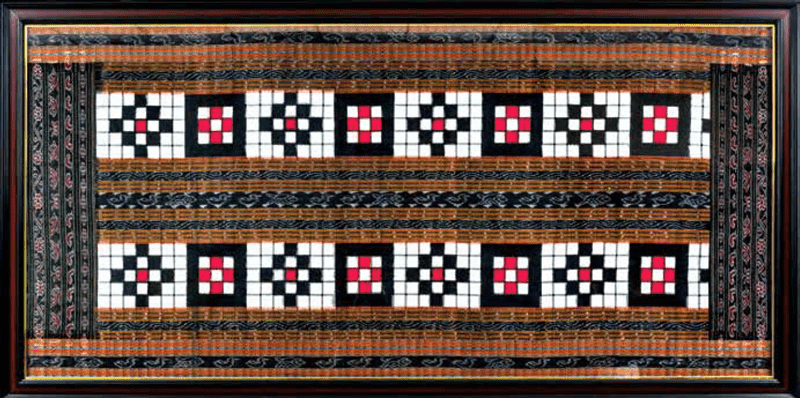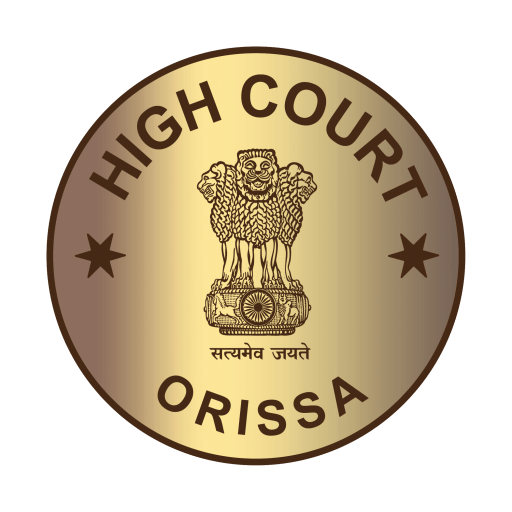JUSTICE DEBABRATA DASH

Rajesh Dharua v State of Orissa
Case No – JCRLA. No 98 of 2022
Date of Decision – 13.11.2023
Non-appellant co-accused cannot be denied acquittal in fit
cases only because of failure to prefer appeal.
The Appellant has preferred this appeal from jail challenging the sentence of life imprisonment along with 10,000 Rupees fine, and in case of default, 1 year of rigorous imprisonment. He was arrested for the murder of Ratan Bhue, along with one other person. He also led the police towards discovery of the weapon used in murder. Based on such the trial court had convicted the appellant and other co-accused. Hence the appeal, but the other co-accused has not preferred the present appeal.
The appellants argue that prosecution’s case rests purely on circumstantial evidence, the circumstances being that the deceased was last seen with the appellant and that he had led towards recovery of weapon.
On the last seen theory, the court expressed some doubt regarding the testimonies of the prosecution’s witnesses and as such the last seen theory was found to have not been established warranting any explanation from the accused as to the deceased’s whereabouts. On the admissibility of discovery evidence, the court also observed that the various statements of the witnesses are either inconsistent or non-corroborating, which raises credibility of on so called discovery.
Based on the observations, the court declared that the trial court has erred in holding the appellant guilty as the case not been established beyond reasonable doubt.
Furthermore, the court was asked to decide the fate of the other co-accused who, although had not preferred the appeal, is in equal footing with the accused filing the appeal. At the end, the court emphasized the provision 482 and 401 of CrPC and the judicial precedents which point to the fact that the non-appellant co-accused under the circumstances should not be denied the benefit extended to the co-accused who had filed the appeal and must also be released forthwith along with the appellant-accused.
Resultantly, the appeal is allowed.
Bishnupriya Naik @ Nayak v Ramesh Chandra Behera & ors
Case No – RSA. No 383 of 2023(A) and RSA 385 of 2023(B)
Date of Decision – 1.11.2023
Amendment to the plaint cannot be allowed to change the nature of the suit.
The appellants
The appellants are aggrieved by the order of the first appellate court, in setting aside the decree of the trial court originally awarded in favor of the Defendant. By allowing the appeal, the first appellate court declared the will as valid and right title interest of the plaintiff over the suit land was restored.
Plaintiff argued that he had been in conscious and continuous possession of the said Suit land via a lease deed executed in his favor, by Indumati, with exclusive and uninterrupted possession for the duration of the lease. Subsequently, Indumati agreed to sell the entire suit land and to the end had paid her sons their part and only her part was left to be paid. The plaintiff is ready to willing to perform his part of the obligation, since the original agreement was in 1988.
In pursuance of the original agreement, the plaintiff had everything within his power to obtain the patta of the land in favor of Indumati and after that she was to transfer the said suit land to the plaintiff. However, in the meantime, it is alleged that she had prepared a Will to safeguard the plaintiff’s interest in the suit land and after filling of the suit another unregistered will was produced, where Indumati purportedly has bequeathed the property in favor of Defendant no2, of the original suit.
Defendant No 2, counter claimed that Indumati had executed the second will and revoked all her previous will and that she had done so out of love and affection. Hence the question of law before the court was whether the first appeal court had rightly held the first will to be valid and the second, in favor of Defendant No 2, to be invalid.
To this end the court observed that in the original suit there was no mention of the any will but only a prayer for specific performance of the agreement. The averment for will, praying for the title, was inserted later by amending the plaint and the prayer. That amendment, changing the nature of the suit, was seen with grave suspicion. Therefore, the court held that determination of title based on the 1st will cannot be sustained.
Similarly, on the second will also, the court opined that its validity must have been pressed separately and not as a counterclaim to the original suit for specific performance. Hence the claim of title based on the second will is also outside the scope of the original suit so as to be decided through a counter claim.
Resultantly, the appeal was allowed dismissing both the suit and counter-claim.
Sukanta Prusty v Gayadhar Prusty & anr
Case No – RSA. No 161 of 2019
Date of Decision – 4.12.2023
General power of attorney cannot authorize sale of land by executing
sale deed in absence of specific term to that effect.
In this case the appellant-defendant no 1 is the brother of the respondent no 1-plaintiff, who had filed the original suit with the prayer for joint ownership of the suit land. The original suit was dismissed and the plaintiff had carried the matter in appeal, wherein the appeal was allowed granting all the prayers of the plaintiff. Being aggrieved by this order the defendant no 1 has preferred the second appeal.
The Plaintiff stated that, he being an illiterate person, was duped into selling his half-share in the joint property to the defendant no 1 and that both the defendants have colluded to usurp his share in the suit land. The defendants on the other hand contend that the plaintiff is not illiterate, rather has voluntarily executed the power of attorney in favor of defendant no 2 to subsequently execute the sale deed in favor of defendant no 1 in lieu of monetary compensation.
The question of law before the court was to determine the party on whom the burden of proof lies regarding the executed power of attorney.
The defendants submitted that since the allegation of fraud was brought forward by the plaintiff, the burden of establishing the same should lie upon him. The plaintiff submitted that the execution of power of attorney and subsequent sale though is believable, yet considering the totality of the evidence obtained, it became evident that the plaintiff never intended to execute the power of attorney or the subsequent sale deed.
The court held that the power of attorney executed was general in nature and the terms nowhere indicate that the attorney was authorized to sell the suit land by executing the sale deed. Furthermore, no explanation has been adduced from the side of the defendants as to how the consideration amount was transferred or why the said power of attorney was silent about the scheme of such transfer. All these raised grave suspicion in the minds of the court regarding the validity of the said power of attorney.
Resultantly, the appeal was dismissed.
Power Grid Corporation of India Ltd, Balangir v The Collectorcum-
Land Acquisition Officer, Balangir & Others
Case No – W.P.(C) No 26192 of 2022
Date of Decision – 4.12.2023
Collector acting as ‘Referral Court’ under the Land Acquisition Act
cannot condone delay beyond statutory period of limitation.
The petitioner had approached the High Court against the action of the Referral Court, that had allowed the reference beyond the period of limitation as prescribed under the Land Acquisition Act.
The petitioner argued that by efflux of time, the right of reference has been extinguished and such a reference is bad in law. The act of condonation carried out is de hors the provisions in the Act, as there is no provision allowing for condonation and that reading the same not existing in the statue is also permissible.
Therefore, the court framed 2 major questions for determination, firstly whether the referral court can discharge the reference initiated beyond the period of limitation and secondly, whether the referral court should have admitted the reference condoning the delay.
The high court referred to a catena of decision on this point, specifically as to the extinguishment of the right beyond the period of limitation and stated the settled law that the claimant loses their right to call for reference once the statutory period of limitation has expired. It further explained that the position of the collector in reference is one of a statutory authority and not a court, therefore it cannot assume the role of a court to condone the delay on an application filed beyond the statutory period. Additionally, the law casts an obligation upon the court to satisfy on the question of limitation, among other things, so to hear the reference.
The High Court pronounced that where the reference has not been proper, the court lacks jurisdiction to hear the reference, which is the situation in the present case. Consequently, since the referral court lacks jurisdiction, it is also not permitted to admit the case to condone the delay, and turn an invalid reference as valid.
Resultantly, the proceedings before the reference court is quashed

Bandhakala handloom artwork, known locally as sambalpuri, dispalyed at
second floor corridoor, New Building of the High Court
